I am running a node Express website on my OS X machine locally.
I need to ssh to a remote mysql database so I can start writing queries against it.
Now I'm able to ssh to our remote server (running the mysql database) in the cloud when I do it via my OS X Yosemite terminal.
But I haven't been successful trying to do it in code using the node-mysql and tunnel-ssh node middleware.
My code runs but doesn't really error out except for my GET when debugging my express app in Webstorm.
Some facts:
I'm able to SSH into mySQL from OS X using this command:
ssh -L 3306:127.0.0.1:3306 ourCloudServerName.net MyUserNameHere
I'm able to then connect to mySQL using the following command:
mysql -h localhost -p -u myUserNameHere
When I'm at the mysql command prompt and type SHOW GLOBAL VARIABLES LIKE 'PORT', I get that the server (or database I guess that means...not sure) is running on port 3306
I'm debugging via Webstorm 10.0.3 This means I'm debugging my Node Express app which starts like this:
var port = 3000;
app.set('port', port);
app.listen(app.get('port'), function(){ console.log('Express web server is listening on port ' + app.get('port')); })
- I can run my express app via localhost:3000 in Chrome
Now here is my first attempt to try and use both node-mysql and tunnel-ssh
mysqlConfig.js
var databaseConfig = module.exports = function(){};
module.exports = {
mySQLConfig: {
host: '127.0.0.1',
username: 'root',
password: 'rootPassword',
database: 'SomeDatabaseName',
port: 3306,
timeout: 100000
},
sshTunnelConfig: {
username: 'myusername',
password: 'mypassword',
host: 'ourCloudServerName\.net',
port: 22,
//localPort: 3306, //4370
//port: 3333,
//localPort: 4370,
dstPort: 3306,
srcHost: 'localhost',
dstHost: 'localhost',
localHost: 'localhost'
}
};
connection.js
var mysql = require('mysql'),
config = require('./mysqlConfig'),
tunnel = require('tunnel-ssh');
var connection = module.exports = function(){};
createDBConnection = function(){
var mysqlConnection = mysql.createConnection({
host: config.mySQLConfig.host,
user: config.mySQLConfig.username,
password: config.mySQLConfig.password,
database: config.mySQLConfig.database,
connectTimeout: config.mySQLConfig.timeout
});
return mysqlConnection;
};
connection.invokeQuery = function(sqlQuery){
var data = undefined;
var sshTunnel = tunnel(config.sshTunnelConfig, function(error, result) {
var sqlConnection = createDBConnection();
sqlConnection.connect(function (err) {
console.log(err.code);
});
sqlConnection.on('error', function (err) {
console.log(err.code);
});
data = sqlConnection.query({
sql: sqlQuery,
timeout: config.mySQLConfig.timeout
}, function (err, rows) {
if (err && err.code) {
console.log("error code: " + err.code)
}
if (err) {
console.error("error stack: " + err.stack)
}
;
if (rows) {
console.log("We have Rows!!!!!!")
}
});
sqlConnection.destroy();
});
return data;
};
router/index.js
var connection = require('../config/database/connection');
var express = require('express');
var router = express.Router();
router.get('/', function(req, res) {
var sqlStatement = "Select top 10 from someTable";
var rows = connection.invokeQuery(sqlStatement);
});
module.exports = router;
So I try debugging in Webstorm and I either never really get a good error printed to the console or if I do, it's a generic node error like. I could have a fundamental code problem and/or just not setting up the values right or using the middleware right, I just don't know, It's not telling me much during debug. I just know that:
1) I'm not getting a connection to the server via ssh. Connections show 0 in the ssh server object during debug
2) mysql connection object shows disconnected, never connected
3) I'm also getting this node error in Webstorm while running the express website which doesn't tell me jack:

What connection is refused, I'm running this website via localhost port 3000. Is this saying it couldn't connect to ssh? I have no idea here. This doesn't always show up or happen, it's an intermittent error and might just be a webstorm debug thing to where I just need to run debug again and usually goes away...but might be interrelated, no clue.
And here is what my config object has when I check it out during debug



And in tunnel-ssh/index.js, line 70 where it returns the server that it attempts to create, I see there is no ssh connection:

UPDATE - per suggestions from answers



